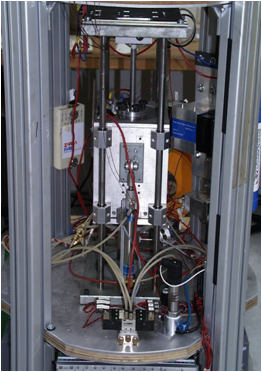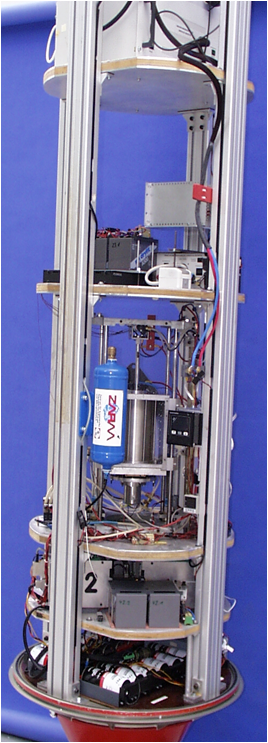heat transport propperties of metallic melts (BMBF)

research area: materials sciences
experiment title:
Heat Transport Properties of Metallic Melts under Microgravity Conditions
experiment acronym: BMBF
funding agency: DLR
grant number: (UNG-011-97)
performing organization:
University of Miskolc, Miskolc-Egyetemváros, H-3515 Hungary
prime investigator: Dr. Pál Bárczy
experiment objective
abstract
A fundamental issue of heat conductivity measurements in liquids is, that heat transfer is always tied together with gravity driven mass transport. Buoyancy-driven convective flows always take part in heat transport on Earth due to the gradient in density caused by the thermal gradient. Numerous techniques have been developed to decrease the effect of convection and to measure the thermal conductivity in fluids but each method has only succeeded partially and still retain smaller or higher effect from the liquid flow. Microgravity provides a possibility to eliminate the convection, giving a unique opportunity to measure heat transport more precisely than in the normal gravitational environment.
Between the years 1992-2001 within the frame of the Miskolc-ZARM co-operative agreement, multiple drop experiments were performed in the Drop Tower “Bremen” using a drop device built at the University of Miskolc, which was capable for rapid temperature measurements during the quenching process in order to describe the heat transport inside the liquid substances during the 4.7 seconds of free fall, providing a level of microgravity of about 10(-6)g. The results show that the effect of gravity was greatly reduced but not eliminated.
related publications
- Viktor Bánhidi: Evaluation of Microgravity Heat Conductivity Measurements with FLUENT System. Materials Science Forum, Vol. 589 (2008), 287-292
- Viktor Bánhidi, Tamas J. Szabo: Detailed Numerical Simulation of Short-Term Microgravity Experiments to Determine Heat Conductivity of Melts. Materials Science Forum, Vol. 649 (2010), 23-28
experimental setup

experiment campaigns
experiment year: 2000
number of drops: 14


 "
"